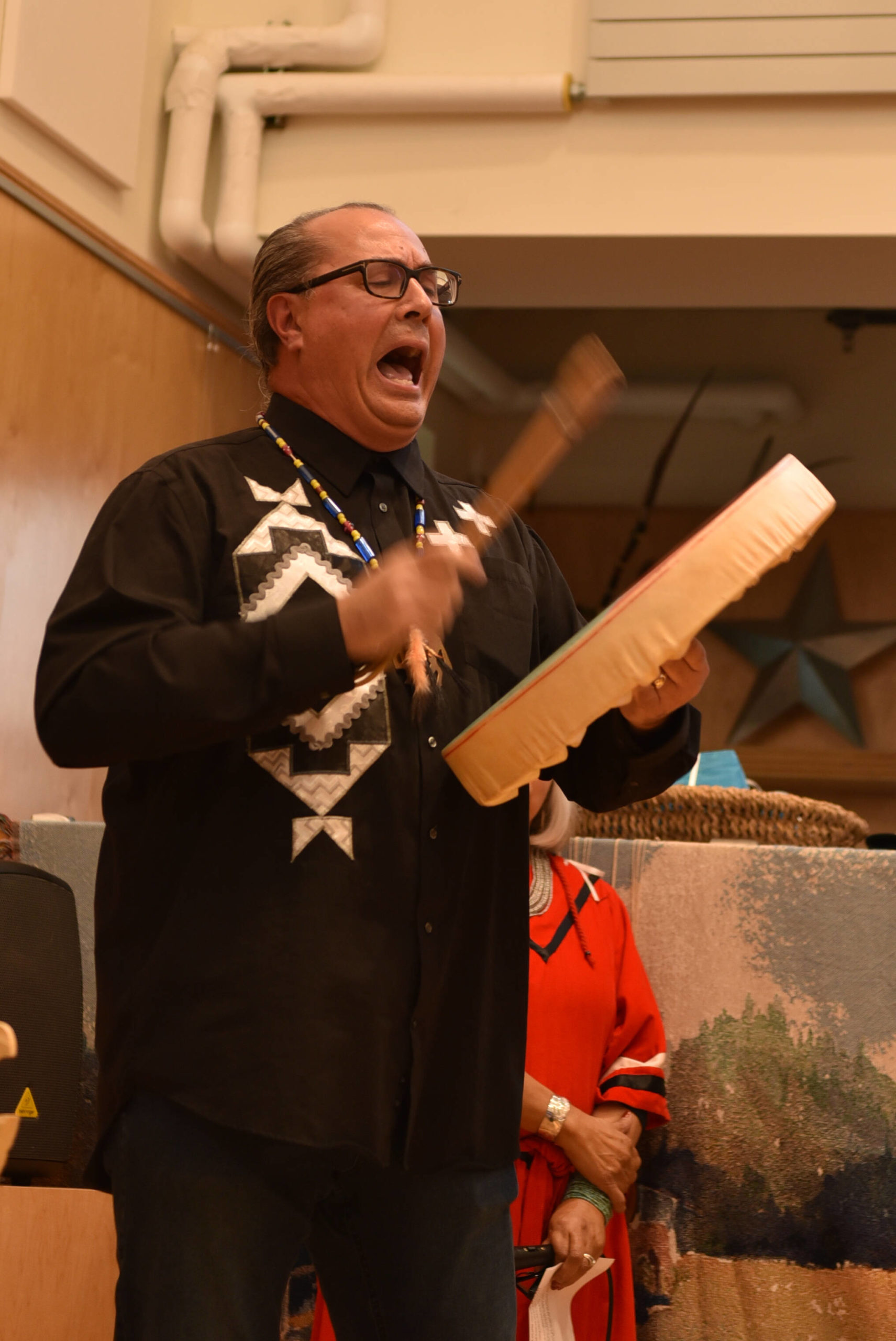Charles Sharpe of Bainbridge Island made a drum to celebrate Indigenous People’s Day, and he’s already planning to get some deer hide to make another one.
Sharpe is a retired carpenter who teaches woodworking at Bainbridge Artisan Resource Network. That’s where tribal elders and BI leaders and community members gathered to celebrate the traditions of Indigenous people around the world on Indigenous People’s Day Oct. 10.
“There was a lot of talent in there and a lot of knowledge,” he said, of the drum-making workshop that was part of the celebration. “They talked about the spirit of the deer being in the drum and that these drums are for calling the ancestors. You could tell this was part of a lineage that goes back maybe 10,000 years here.”
Members of the BI Indipino community, the Suquamish Tribe and the Squamish Nation in British Columbia attended the two-day event, which also included a community gathering and a film screening of Honor thy Mother: the Untold Story of Aboriginal Women and Their Indipino Children.
Chief Dale Harry, a Hereditary Chief of Squamish Nation, taught a four-hour drum-making workshop where students learned to lace an elk or deer hide over a 14-inch maple frame. Participants played their drums for the welcome song at the community gathering that was led by Harry.
Suquamish tribal elder Ed Carriere, a master basket weaver and canoe and paddle carver, displayed several of his baskets for the public. Carriere showed a clam-gathering basket, a shrimp-gathering basket made of cedar limb and cedar root, and a mat made from Tule reeds that he said, “grow with cattails.”
Darlene Peters, a Port Gamble S’Klallam Tribe elder from Kingston, spoke about the tradition of fabric weaving. “I was taught by the grandmothers,” including her own, Josie Anderson. Peters wore one of her woven robes, a black and white shawl with a boxes-within-boxes pattern that took more than five years to make.
Peters is a retired educator and furthers the art by teaching tribal members. “It’s important to see the differences in the culture, the voices of our ancestors coming through. Our ancestors are speaking and reaching through the centuries. They fought hard to get us where we are.”
Joseph Martin, executive board chair for the Indipino community, sang an honor song that he dedicated to the dignitaries present, the planners of the event, the Squamish Nation, and “to the 36 indigenous mothers who are the founders of this Indipino community here in the Bainbridge Island and the Suquamish national area that represent nineteen indigenous nations.”
During the evening event, attendees spoke with tribal elders about their way of life, sampled fry bread tacos made by chef Shelly Price and spoke with artisans who made ribbon skirts, drums, baskets, woven cedar and fiber textiles, and cedar potlatch hats. Several artisans sold items, including Kippie Joe, a Suquamish tribal member who makes potlatch hats from cedar bark. She was making one during the gathering.
Joe explained that one can tell where a person is from by their potlatch. “You know they’re Northern or from the Northwest if they have a shorter top.” Joe has been weaving for more than 30 years and began “pulling cedar” as a child. She learned from different people and considers Carriere a mentor. “We call each other weaving buddies.”



